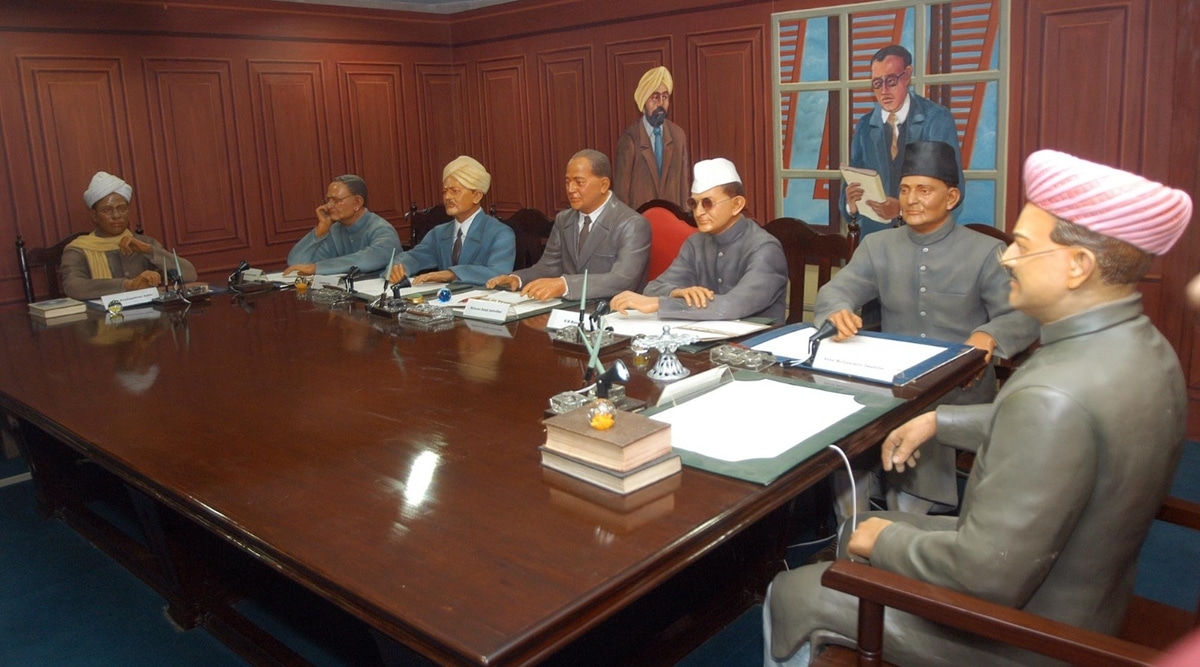“Horrible quality” of content; “ashamed” that references are plucked from Wikipedia; no disclosure of who the experts are — the ambitious project to upgrade the existing Parliament Museum has run into rough weather.

All this with barely four months to the August 15 deadline for the upgraded museum to be thrown open.
The nearly Rs 15-crore project is meant to modernise and upgrade the existing Parliament Museum — which was inaugurated at Parliamentary Library Building on August 15, 2006 by then President A P J Abdul Kalam. Currently, all exhibits have been dismantled as the museum awaits its upgrade.
The upgraded facility is envisaged as a museum spread over two floors showcasing six themes: Seeds of Democracy; Constitutional History of India; The Structural Strength of India; Indian Democracy in Action; Successful Running of India’s Democracy; and The Parliament Building: Past, Present and Future.
A senior Ministry of Housing and Urban Affairs official, with knowledge of the Central Vista plan, said that this Parliament Museum was not a part of the masterplan of the Central Vista redevelopment.
In April last year, NMI was entrusted with the task to “conceptualise, create and curate” content. Gurugram-based Pan Intellecom, a private company, got the Rs 14-crore contract to implement the upgrade based on content from NMI.
Story continues below this ad
Sources said on January 24 this year, for the theme “Seeds of Democracy,” Pan Intellecom suggested to NMI, through historian Makkhan Lal, an ex-AMU professor — who has worked on the Prime Ministers’ Museum – that the entrance should showcase speeches on the roots of Indian democracy by first Prime Minister Jawaharlal Nehru; Chairman of Drafting Committee of Constitution of India Dr B R Ambedkar; and Prime Minister Narendra Modi.
Lal, engaged by Pan, recommended the following excerpts: “India is mother of democracy” speech by Modi at Red Fort on August 15 last year; part of Nehru’s speech in Lok Sabha on March 28, 1957 about why India had chosen a parliamentary democracy; and an excerpt from Dr Ambedkar’s speech at Constituent Assembly on November 25, 1949 about the history of democracy in India.
In response, on February 9, Manvi Seth, Dean (Academic Affairs) and head of the NMI’s Department of Museology, also in charge of the project, wrote to Secretary General of Lok Sabha Utpal Kumar Singh: “It is paramount that narrative and content has to be treated as sacrosanct and thoroughly objective. No modification (addition or deletion) regarding the content is to be done by Pan on its own and without prior consultation with NMI and agreement on the same.”
Clearly, NMI saw Pan’s content suggestions as encroaching into its turf, said a senior official.
Story continues below this ad
On March 24 this year, sources said, in an email to Lok Sabha Secretariat and copied to NMI, Lal flagged “the horrible quality of contents” provided by NMI and asked NMI to disclose those involved in the content preparation.
On April 3, Additional Secretary of the Lok Sabha Secretariat, Prasenjit Singh, in an email to NMI, echoed these concerns and said that, among other things, the “NMI is evading the sharing of details of experts.”
Singh also underlined that “complete templates for the first three themes” were still awaited.
A week later, on April 10, NMI shared links of articles from Wikipedia about Mysore, Aundh and Travancore and Cochin as sources of its references.
Story continues below this ad
This prompted Lal to fire off a reply on April 12: “As a historian I am very disturbed and feel ashamed that Parliament Museum is being curated on the basis of Wikipedia and questionable sources from the net rather than published sources in the libraries. NMI should be asked to provide the list of the names of authors of the contents and references from them under their signature and deal. Else it must be disassociated with the project and asked to return the money taken so far for the purpose.”
When contacted, Lal declined to comment.
Said Harbir Singh Panesar, Managing Director of Pan Intellecom: “We have been given time to complete the project within five months of receiving contents which we are yet to get. I can tell you the expected date of completion only when we receive all inputs.” Prasenjit Singh of the Lok Sabha Secretariat was unavailable for comment.
When asked about Lal’s response, NMI’s Manvi Seth told The Indian Express, “It is patently wrong (to say) that a large portion of source material for the content submitted by NMI was from Wikipedia. Content has been created through research, field work, consultation with pertinent subject matter experts and archival research…regular consultation and discussions have been held with the Parliament Museum.”
Asked about Pan’s suggestion on speeches that NMI rejected, Seth said: “The idea of using quotes/speeches wherever relevant and required has always been welcomed.”









